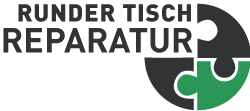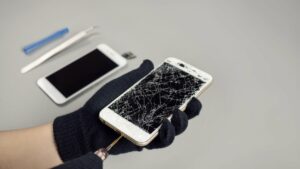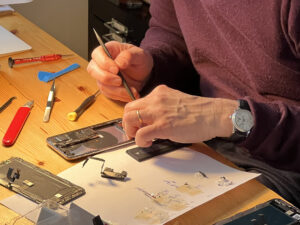
Stellungnahme zum neuen EU-Aktionsplan für eine Kreislaufwirtschaft
Bis zum 20. Januar konnten interessierte Verbände, Unternehmen, Einzelpersonen und Behörden ihre Stellungnahme zu den Plänen der EU-Kommission für einen Kreislaufwirtschaftsaktionsplan einreichen. Der Runde Tisch Reparatur hat in seinem Feedback auf das noch ungenutzte Potential der Reparatur für Ressourcenschonung hingewiesen und konkrete Maßnahmen vorgeschlagen, die im Aktionsplan enthalten sein sollten.
Stellungnahme des Runden Tisches Reparatur e.V. (im Original auf der Seite der EU-Kommission lesen)
We welcome the European Commission’s initiative to present a new Circular Economy Action Plan designed to help fight climate change, reduce the environmental footprint of consumption and preserve the EU’s natural environment.
Scientific research has shown that lifetime extension is the single-most important aspect to reduce overall environmental impacts of products, in particular mobile high-tech products, far more important than material recycling. Repair, maintenance and upgrade of products are key contributors to lifetime extension. We suggest that more direct attention should be given to products’ repairability, therefore the Circular Economy Action Plan should explicitly:
- Ensure that all products entering the EU are designed for maintenance, repair and upgrade. Appropriate considerations during the design phase are the prerequisite for maintenance, repair and upgrade in the use phase
- all components can be easily accessed, maintained and replaced in case of a malfunction by the user with commonly available tools,
- improvements in functionality can easily be achieved by replacing individual components in charge of a functionality instead of purchasing a new product (modular design)
- software security updates are provided separately from functional enhancement updates which the user will able to allow or refuse on a function by function base.
- Establish repairability requirements for ICT products starting with smartphones and including tablets, e-readers, computers and printers (hardware and software)
- Ensure that OEM, importers and retailers do not exclude any actors (independent repairer, repair initiatives, end-users) from the repair market. Only if all actors have easy access to the spare parts, software and repair instructions for reasonable prices, the significant contributions of repair to a circular economy can be achieved.
- Ensure that Product Safety and Product responsibility are not misused by OEM, importers or retailers to restrict maintenance and repair by users and repair initiatives through limited access to spare parts and repair instructions. Products should be designed for repair by end-users ensuring safety by appropriate design and documentation, as it has been in place for decades.
- Ensure the initiative also builds on, and further expands the Ecodesign directive and requirements (Ecodesign is not mentioned in the list in the paragraph “Evidence base and data collection”).
- Ensure that smartphones and other products are prominently targeted in the Ecodesign Work Plan 2020-2024
- Ensure that repairability and upgradability defined as mandatory design requirements for digitization and emerging technologies, such as IoT products, Smart Products and AI, as these new types of products pose a challenge for repair due to the complex interaction of software and hardware and the convergence of products.
- Finalize work on the European Repair Score Index and pilot a repair label on several products (e.g. laptops and washing machines)
- Link repair to the EU climate goals allowing for better accounting the embedded energy within products
- Allocate EU funding mechanisms to support the repair sector in Europe as a major provider of circular employment opportunities. Carry out an assessment of the current employment contribution of repair to the EU
- Utilize environmental fiscal reform, including VAT reductions to reduce the cost of repairs and of refurbished products
- Recommend Green Public Procurement to systematically favour
- repair over replacement purchase
- the purchase of used, refurbished, repairable and long lasting products.
- Ensure that all products and the processes related to repair and upgrade of products are designed to make repair and upgrade attractive and preferable for consumers and a convenient, time-efficient and affordable option compared to replacement purchase.
Siehe auch: Europäischer Grüner Deal verspricht „reparierbare Produkte“






